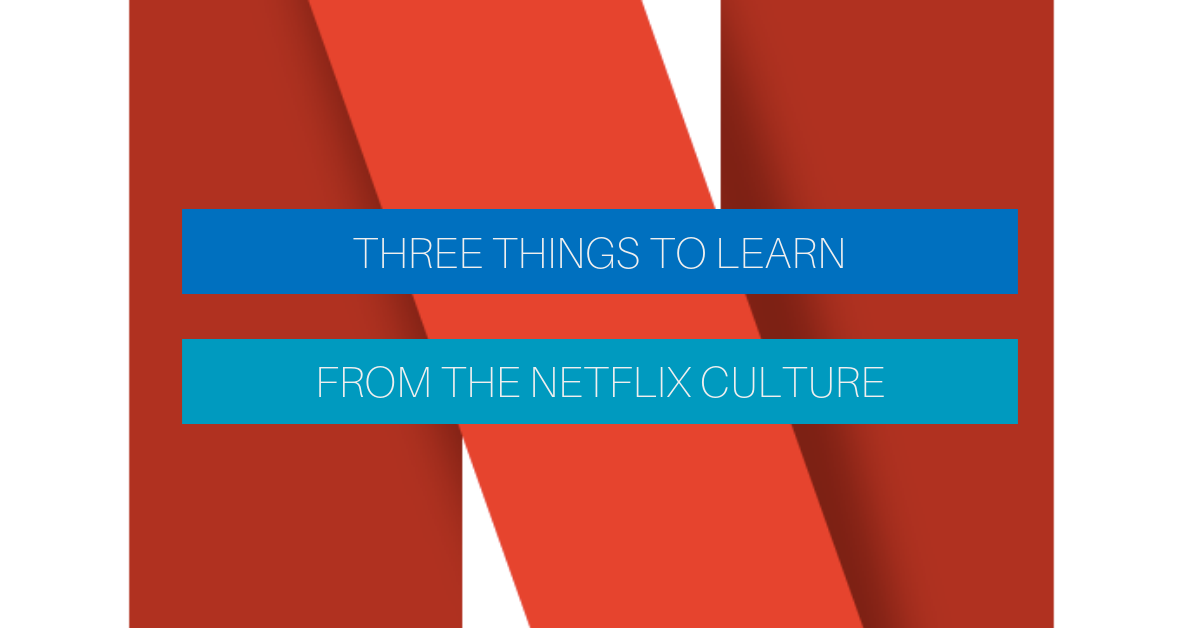Three things to learn from the Netflix culture
Building on my last article ‘small steps to a better culture’. I have always been intrigued by the Netflix People and Culture deck that was circulated a few years ago. After discussing it with several people over the years it is clear that not everyone agrees with some of the statements on the slides. In particular the statements about focusing only on top performers. I recently read ‘Powerful - Building a culture of freedom and responsibility by Patty McCord’ (link). She was the main contributor to the Netflix deck so I was keen to read/listen to her ideas around the concepts in the slides. The main takeaways for me from this book are:
Finding the right people for the right role. Managers these days are not hiring people based on their skills alone. They are considering attitude, ability to learn, ability to adapt and cultural/team fit. The book digs into ‘cultural fit’ and the shadow side of it. When we think of culture, we think how well someone will get along with the team. Although it is important, it does not always translate into a high performing individual. My goal as a manager is to have the team with individuals performing well in their role, as well as perform well in a team. These 2 items are not the same and are important in the Netflix culture.
At the risk of contradicting myself when I write about the book ‘Vital Friends’. A close second is ensuring that they like each other and calling that 'culture'. We want to steer away from making excuses for someone that is not meeting expectation in their role. In particular, because we like them. This will add load on all other members of the team, which in the long term will have a negative impact. It will also not help the individual longer term with their career. When reviewing candidates for cultural fit. First, consider how they will challenge the team and push the team to be better. Will they have professional respect for each other and give each other feedback? Having a friendly team does not always translate to a performing team.
Open communication. This topic comes up over and over in all leadership books. Transparency for a manager to an employee can be a difficult thing. An observation I see is someone has been in the same role for a quite a few years and the role has evolved around them. They were rock stars in their roles and were not so quick to adapt to the newer role that has formed as part of the organisational change. As you hire new people that fit the current and future role, the legacy rockstar employee doesn't look like a rock star anymore. The gap widens and the frustration grows as they start to notice it themselves. One way to avoid this is through having an open conversation albeit it being awkward. The Netflix culture encourages the 'awkward' conversation to take place in a positive tone. It follows this pattern. We appreciate everything you have contributed to the team so far; the role is evolving to X and your skills in Y are becoming less aligned. I want the best for you and want to help you either gain new skills or find you a new role where your skills will thrive.
I have had this conversation a few times myself and the responses have varied but the results have always been more positive for the individual. The responses varied from “are you pushing me out of the team” to “thank you, you are right it is how I have been feeling, but I have been avoiding it”. So, I am sure a few people out there are not huge fans of me. But keeping tabs on a few of them, they have achieved their career goals sooner and are happier in their new roles. This allows me to feel a little more comfortable going through future awkward conversations.
There are situations where your approach will need to differ from this. So, speak to your HR beforehand to ensure you are doing it correctly.
Everyone should know the business. Having the right people in the right role (Jim Collins Reference) is key to high performance in a role. But that is not the end of the person's potential. Having each person understand their impact on the organisation's goals will broaden their point of view. Once they understand their impact and their department. They can start to see other teams and departments. With a broader knowledge of the business, their ideas can be multiplied across the business.
Reducing silos is something we work with our customers on. It increases collaboration and increases the golden moments when a small group has spent weeks on a problem. Only for another person to walk in from another area of the business and easily removes a major blocker. "Oh, that was a legacy restriction, we changed the way we do this 6 months ago". So encourage everyone on your team to start small and understand their impact to the organisation and expand their knowledge from there.
Those are my three takeaways from the book about the Netflix culture that should be considered for your team.
Note: Opinions expressed are solely my own and do not express the views or opinions of my employer.
